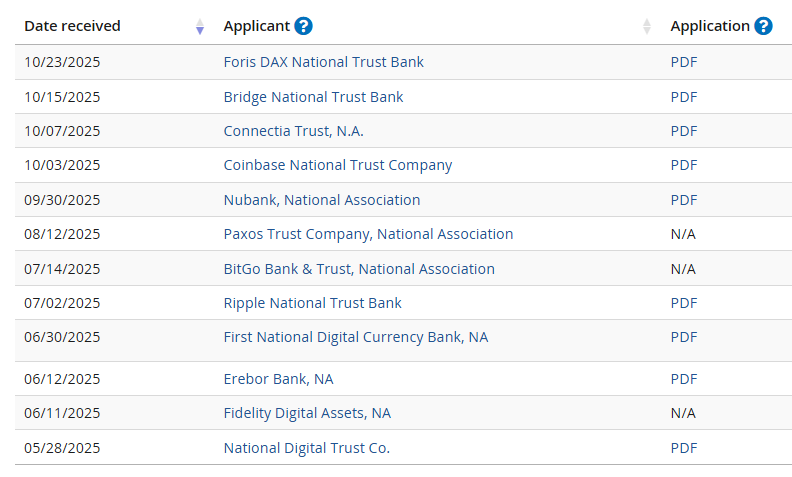
The Office of the Comptroller of the Currency (OCC) has come under pressure to reject Sony Bank’s bid to enter the crypto banking sector in the United States. Letters filed in early November by banking and community groups raised strong opposition to the project and its possible effects, according to reports.
Sony’s banking plan
Sony Bank has applied to create a national trust bank called Connectia Trust, according to public filings and reports. The plan would allow Connectia to manage the reserves of a US dollar-pegged stablecoin and offer custody and asset management services for the digital tokens.
The OCC issued Interpretive Letter 1183 in March 2025, which clarifies that domestic banks may engage in certain crypto activities when they comply with risk controls. However, trust banks do not accept FDIC-insured deposits, and this difference is at the heart of the debate.
Defenders say the structure fits within the narrow scope set out by the OCC in Letter 1183. Critics say it does not.

Source: OCC
Questions include how reserves would be composed, how redemptions would work under stress and what would happen to assets in custody if the trust were placed in receivership.
Community banking groups and consumer advocates want clearer and more public explanations of these mechanisms.
Banking groups react
On November 6, 2025, the Independent Community Bankers of America (ICBA) sent a formal letter urging the OCC to deny the application.
ICBA’s main point is that a trust charter could allow an owner of a large business to offer a product that resembles a deposit but lacks deposit insurance and typical bank obligations.
They called it a form of regulatory arbitrage and warned it could create unfair competition for smaller banks. The National Community Reinvestment Coalition also filed an opposition, arguing that the OCC does not have the authority to treat a stablecoin issuer like a traditional bank and calling for stronger consumer protections.
These groups focused on three practical concerns: consumer confusion about what is insured and what is not, unclear reserve transparency, and the lack of tested tools to resolve a trusted bank holding crypto assets.
The letters highlight the potential consequences of a run on a large stablecoin and the difficulty of ending token custody in a crisis.

Image: Saiga NAK
Systemic and consumer risks
If a federally chartered trust issues a widely used stablecoin, it could set a legal precedent that other technology or financial companies could follow.
This is why some documents argue that the OCC should move slowly and require stricter conditions. Reports have revealed concerns that retail users could treat the token as a bank deposit, while it would not benefit from FDIC protection.
The risks are not just theoretical. In the event of stress, reserve assets could be sold quickly and digital assets could be difficult to transfer into an escrow framework designed for traditional assets.
Featured image from Wikimedia CommonsTradingView chart

Editorial process as Bitcoinist focuses on providing thoroughly researched, accurate and unbiased content. We follow strict sourcing standards and every page undergoes careful review by our team of top technology experts and seasoned editors. This process ensures the integrity, relevance and value of our content to our readers.




